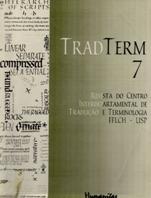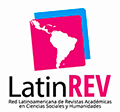Terminologia e lexicografia
DOI:
https://doi.org/10.11606/issn.2317-9511.tradterm.2001.49147Keywords:
Terminology, Lexicography, cognitive categories, dictionary production, lexical units, multi-word units.Abstract
The lexicon of a language is related to the cognition of reality and with the ‘naming’ process, as fixated in words and terms. The conceptual universe of a language can be described as an organised and structured system of categories. Scientific terminologies are classification systems based on scientific models originated from the structuring of knowledge in the conceptual models through which every science is organised. In spite of the many similarities between Lexicography and Terminology, there are some differences that need clarification. In Lexicology, very heterogeneous lexical units are identified, while in Terminology relatively homogeneous lexical units are found. In Lexicography the lexical stock is not restricted to the referential level, while in Terminology it is centred on the referential level. It is commonplace in the methodology of Terminology to elaborate conceptual maps of every field of knowledge as an aid for term identification and for the elaboration of their definitions. Conceptual maps are structured because concepts are logically and ontologically related to each other. However, the touchstone of the lexicographical and terminological praxis is the identification of lexical units (words and terms), as well as the objective of producing dictionaries. Besides, both sciences are based on a lexical theory; to be sure, words and terms are conditioned by the same word formation rules in a language. However, the use of Greco-Latin formants and the occurrence of multi-word units are more frequent in Terminology.Downloads
Download data is not yet available.
Downloads
Published
2001-12-18
Issue
Section
Terminology
License
Autores que publicam nesta revista concordam com os seguintes termos:
- Autores mantém os direitos autorais e concedem à revista o direito de primeira publicação, com o trabalho simultaneamente licenciado sob a Licença Creative Commons Attribution BY-NC-SA que permite o compartilhamento do trabalho com reconhecimento da autoria e publicação inicial nesta revista.
- Autores têm autorização para assumir contratos adicionais separadamente, para distribuição não-exclusiva da versão do trabalho publicada nesta revista (ex.: publicar em repositório institucional ou como capítulo de livro), com reconhecimento de autoria e publicação inicial nesta revista.
- Autores têm permissão e são estimulados a publicar e distribuir seu trabalho online (ex.: em repositórios institucionais ou na sua página pessoal) a qualquer ponto antes ou durante o processo editorial, já que isso pode gerar alterações produtivas, bem como aumentar o impacto e a citação do trabalho publicado (Veja O Efeito do Acesso Livre).
How to Cite
Biderman, M. T. C. (2001). Terminologia e lexicografia. TradTerm, 7, 153-181. https://doi.org/10.11606/issn.2317-9511.tradterm.2001.49147








